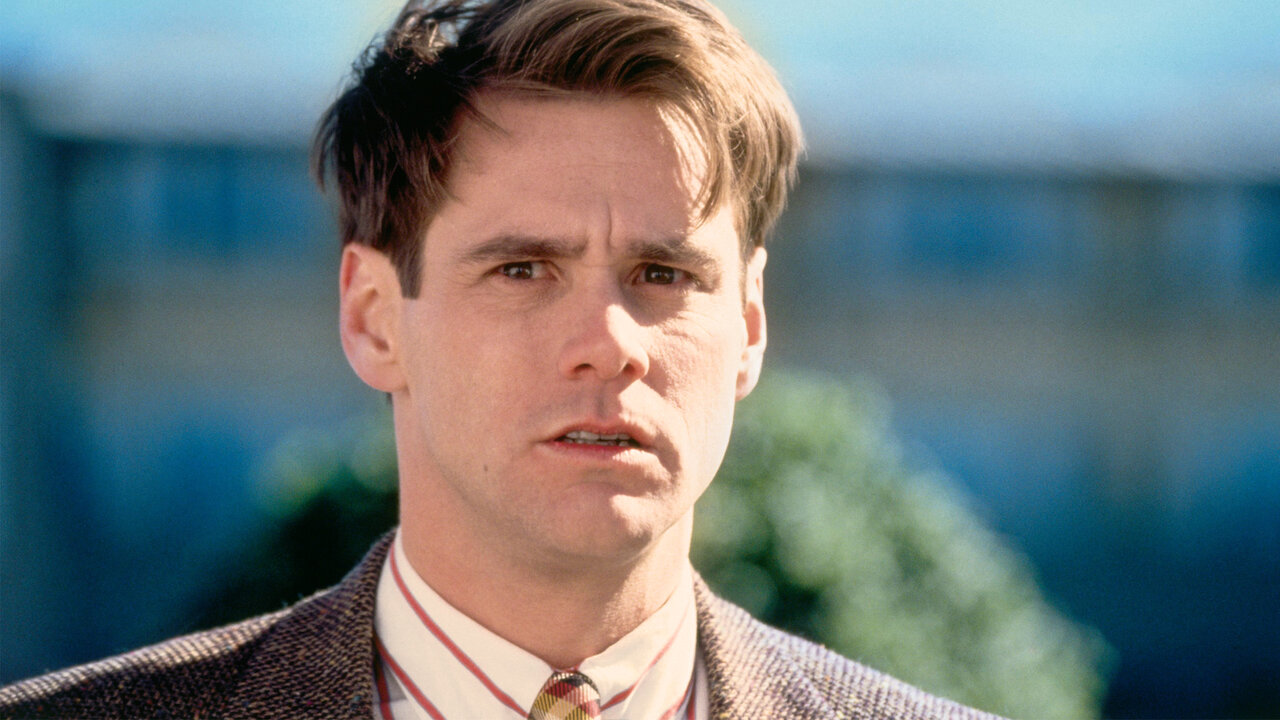The Truman Show (1998)
Directed by Peter Weir
The Truman Show is a thought-provoking satirical drama that follows the life of Truman Burbank (played by Jim Carrey), an ordinary man who unknowingly lives his entire life as the unwitting star of a reality television show. From birth, Truman has been the central figure in a massive television production broadcast to a global audience. Every aspect of his life—his family, friends, job, and even his surroundings—is carefully scripted and controlled by the show’s creator, Christof (Ed Harris).

The story is set in the picturesque, idealized town of Seahaven, which is in fact a vast dome-enclosed set, populated by actors posing as citizens. Truman believes he is living a normal life, but over time, he begins to notice strange inconsistencies. A studio light falls from the sky, radio frequencies accidentally broadcast crew communications, and people seem to follow repetitive patterns. These anomalies plant the seeds of doubt in Truman’s mind.

His growing suspicion intensifies when he recalls memories of a mysterious woman, Sylvia (Natascha McElhone), who briefly tried to reveal the truth before being forcibly removed from his life. Fueled by his desire for truth and freedom, Truman embarks on a quest to escape the artificial confines of Seahaven. Christof and the production team use every means at their disposal to dissuade him, including manipulating the weather and rerouting traffic, but Truman’s determination grows stronger.

Ultimately, Truman orchestrates a daring escape by sailing beyond the horizon, defying his deep-seated fear of the sea (a fear implanted to discourage exploration). He reaches the edge of the dome and confronts Christof, who pleads with him to stay, claiming that the artificial world is safer and more predictable than reality. Truman, after a moment of reflection, delivers his iconic farewell—“In case I don’t see ya, good afternoon, good evening, and good night!”—and exits the set, choosing real life over illusion.
The Truman Show is a poignant exploration of media control, personal freedom, and the human desire for authenticity. Through its inventive premise and emotional core, the film raises timeless questions about reality, surveillance, and the ethics of entertainment.



